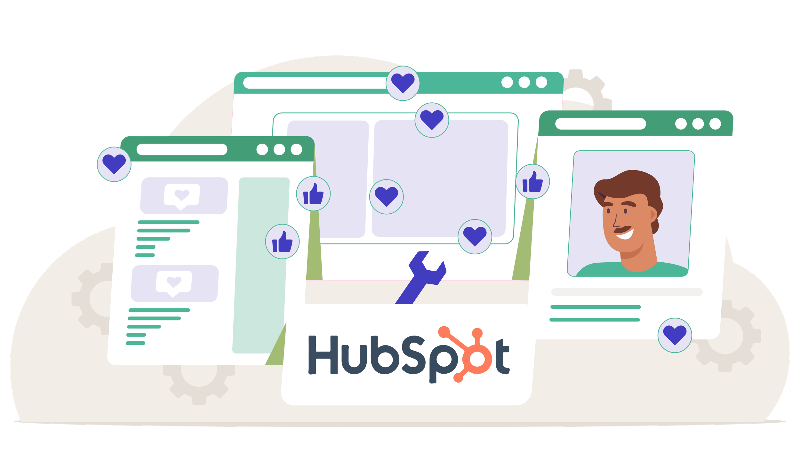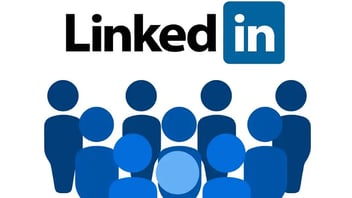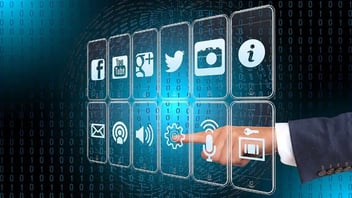Discover how HubSpot Marketing Hub can revolutionize social media marketing. Automate multi-channel postings and leverage AI to maximize engagement.
12 LinkedIn Mistakes to Avoid and Video Tips to Get Maximum Exposure
The drive to achieve outstanding results is a shared experience, akin to navigating the complexities of a competitive landscape. This is an arena guided by data, where professionals are often propelled to explore every avenue to enhance metrics such as clicks, impressions, purchases, and followers. Yet, it's crucial to pause and consider the ethical dimensions of our strategies. The allure of immediate gains through questionable practices may seem appealing, but it's essential to recognize that these short-term victories can lead to long-term repercussions.
The temptation to adopt less-than-ethical tactics can sometimes seem overwhelming. Many marketers, driven by a desire for efficiency, might not initially see their strategies as inappropriate or unethical. However, integrity and authenticity are the cornerstones of sustainable success in our industry.
Being less than honest or sleazy is also pretty effective, at least on a surface level. These tricks and traps work well initially, so why not use them?
The problem is that it's only temporary. Sleaze will net you a slight boost in your numbers, but there's no way you can build the foundation for your marketing on dishonest practices. Over time, clients, customers, other companies, and even algorithms will pick up on your actions, and you will suffer the consequences.
Marketing on LinkedIn is no different. There's a right way to do it and a wrong way to do it. The wrong way may be tempting, but no one wants to deal with that approach at the end of the day.
Long term, the risks aren't worth it. You should even go so far as to avoid many sleazy practices like the plague since they do hurt your long-term growth. Here's a list of sleazy practices, as well as some deadly mistakes, you want to avoid at all costs when building your LinkedIn presence:
Contacting the wrong people
Getting a significant number of followers is great, but why contact someone who works in a different field, lives in a different country, and speaks a foreign language? The odds of them accepting your request are already low enough. At this point, you'd be harming your profile's reputation little by little.
Your connections need to remain honest. It has to be people you already know in some way or people that are relevant to what you do. Before sending them a connection request, ask yourself if they are also interested in connecting with you. There's no point going for total strangers. They have no reason to connect with you anyway. You'll just come off as sleazy.
Asking the wrong people for endorsements, recommendations, or referrals.
There's no point in asking someone you don't know to write you a recommendation. The odds of them doing it are astronomically low. The upside is already negligible, but the downside is also wrong. If you go around asking people who don't know you for undeserved favors, then if, in the future, you do meet them and try to work with them, they may have had a terrible first impression of you. You could even get your account reported for spam, and Linkedin may even suspend you, or you could be flagged by the algorithm and get de-prioritized. Dishonest work has real dangers, so just keep it safe and honest.
Trying to undermine other people on the platform
You may think that getting a quick jab in against one of your competitors will do you some good, mainly if you write a killer comment under one of their posts, but the truth is that it's just seen as unprofessional. As you know, being unprofessional on Linkedin is the last thing you want to be. Generally, you should avoid confronting or calling out your peers publicly. It doesn't sit well with most people.
Using fake information
Putting in fake jobs or experience that you never had can be highly tempting because who will check? Most people aren't going to run background checks on your information. The issue is that those who do are typically the ones that matter the most: potential employers and big clients. These people will do their due diligence when verifying your profile information because their money's on the line. They will ensure you have a programming degree and have worked with that company for four years. It's easy to make up the lie, but the hard part is keeping it going. Once you start coming under scrutiny, it'll become harder and harder to keep up appearances. Seeing that someone is lying is, to no one's surprise, the fastest way to never want to do business with them ever again.
Integrity - It's doing the right thing when nobody is looking.
- Joachim Koch
Just stick to what's true. You can't make up for success anyway. If you lie, things will fall apart, and you'll harm your brand and business when that happens. If you need to lie to keep up with other people's profiles, maybe it's time to get some new experiences. Take a course, branch out, and put in the time and effort to catch up to everyone else - it's the experience that matters anyway, not just saying it on your CV.
You Might Also Like This Post:
Overselling
LinkedIn is a great place to connect and "link," but it's not a marketplace to sell. You can use LinkedIn to educate your target audience about your new products or services, and that's fine. You don't want to be about sales, though. People will notice if you treat every post, reply, message, and reaction like a sales opportunity. That'll make people think you're just using LinkedIn as an ad for your business, trying to get people to buy your products no matter what. Again, personalization disappears in this process.
LinkedIn is a social media platform - there's much more to do than just sell your product. You want to build your brand, connect with your audience, and gain their trust and confidence over time. Treat LinkedIn like a simple marketplace where you put your ads, and you won't see much success.
Automating everything
This mistake is perhaps the hardest to avoid. Automation is a great (and even sometimes necessary) thing to do with your social media. Once things start to scale up, things can get out of hand for a human to manage manually. In those cases, automation is good, and you want to take advantage of all the available tools these days to help you manage your social media more efficiently. There is, however, a point where too much automation won't be as productive as you think.
Automation is great for many things, but it's not something you should utilize in your LinkedIn profile. If you like to read the terms and conditions, you'll learn that the platform prohibits it. Understandably, this hasn't stopped enterprising programmers and startups from offering solutions that do it anyway.
Besides tempting action from LinkedIn to hinder your account, you'll achieve the opposite of what you want to aim for with social media profiles. An overly automated profile will give a terrible impression to visitors. Most people are okay with a few automated responses here or there. Still, if every single activity from your account is automated, people will notice it quickly, and it's very off-putting. Think of it as the LinkedIn equivalent of calling a Customer Service line and not speaking with a human. It just feels lazy, sleazy, and opportunistic.
Boosting your endorsements.
There are many ways to get fake endorsements (or recommendations) on Linkedin. You can do it the hard way and make fake accounts yourself and have them endorse your primary account, or you can purchase services with a horde of fake accounts ready to endorse and recommend your profile for a fee. This isn't just sleazy; this is borderline unethical. It takes advantage of LinkedIn's best feature: having your peers speak in favor of you.
If you're not concerned about the ethical problems of doing this, you should at least worry about the dangers of engaging in this behavior. LinkedIn does its best to crack down on this conduct, and the consequences of getting caught are grave. In the best case, your account will get suspended and de-prioritized by their algorithms very heavily (to counteract your fraudulent endorsements). In the worst case, LinkedIn could permanently delete your account, forcing you to abandon the platform or start from scratch with a fresh account. If your brand is big enough, news of you engaging in this behavior will almost irreparably damage your brand with customers and colleagues in your field. It's not worth it at the end of the day, so stay away from doing it.
Not respecting what LinkedIn stands for.
No matter how much LinkedIn's "social" part grows, it will remain the premier professional platform. LinkedIn tries its best to make the platform as casual as possible but maintains a professional tone at the end of the day.
The easiest mistake you could make is to misjudge LinkedIn for other, more casual social media platforms. You need to understand the site for what it is. You'll start things wrong from the first step if you don't. Remember that LinkedIn is about professionalism. There is space for your personality to shine through, make some jokes, and be yourself, but you shouldn't treat LinkedIn as your outlet for your thoughts. People aren't on Linkedin to interact with you on a personal level. Feel free to show off your personality as long as you relate whatever you do to your professional life.
Making things political.
Politics is an essential part of day-to-day life for many people, so you'd think it could be something you could take advantage of. The problem is politics is usually very divisive. So unless you're taking the safest and standard position, people on either side of the debate will see you as pandering to a specific group, which leaves a terrible impression on them.
Having the wrong profile picture.
Your profile picture is the first thing people see about your profile. It's your first impression to everyone on the platform, and first impressions matter a lot. You can do so many small things that would make your profile picture suboptimal, but luckily they're easy to avoid.
The easiest is ensuring you have a high-quality, clear, well-lit picture—nothing like a blurry or unclear photo that makes someone click away from your profile. Often people use pictures of themselves but with others - a family photo or an image of them at a conference. These pictures can be tempting, but you want to be the only person in your profile picture. Even if a picture with others can be nice, other people will distract viewers, making your profile picture less memorable. If you're the only one in it, it'll be easier for people to remember your face! One last mistake is not being appropriately dressed for your picture.
Neglecting your Inbox.
When you first sign up for a LinkedIn account, you probably experience one of two things: you either forget that you even have an Inbox because no one is sending you any messages, or you quickly learn to ignore your Inbox since the few messages you get are probably automated messages from marketing bots that are useless to you. Keeping this attitude toward your Inbox would be a huge mistake since LinkedIn messages are filled with different opportunities you can't get anywhere else on the site. For example, headhunters often try to contact you through Linkedin, and the same is true for small-scale clients trying to learn more about you and your business. You wouldn't want to miss out on their messages and give up whatever opportunities they present, so ensure you're always paying attention to your Inbox!
Not putting enough time into your profile.
Like other social media profiles, LinkedIn profiles are all about precision and quality. Your numbers will suffer if you're lazy about your profile and miss the mark. Building a killer profile has much to it, but it's worth the effort. Not giving your profile the attention it needs will set you back compared to people competing with you who put in the time and effort. Imagine you're a user, and you come across two profiles. One is tightly built, concise, personal, and informative. The other is still good but has some typos and formatting errors and is a bit too lengthy. Which one would you choose? Most people would go for the first one.
Overall, LinkedIn represents both your and your business or employer's identity. It's best to portray your best side and leverage all LinkedIn offers.
This content is also available in:
- German: 12 LinkedIn-Fehler & Video-Tipps für maximale Aufmerksamkeit
- Spanish: 12 errores en LinkedIn y consejos en vídeo para máxima visibilidad
- French: 12 erreurs LinkedIn à éviter & conseils vidéo pour une visibilité max
- Italian: 12 errori LinkedIn da evitare: video tips per la massima esposizione
- Romanian: 12 greșeli LinkedIn de evitat & sfaturi video pt. vizibilitate max
- Chinese: 12 个需要避免的 LinkedIn 错误以及获得最大曝光率的视频技巧










Leave a Comment